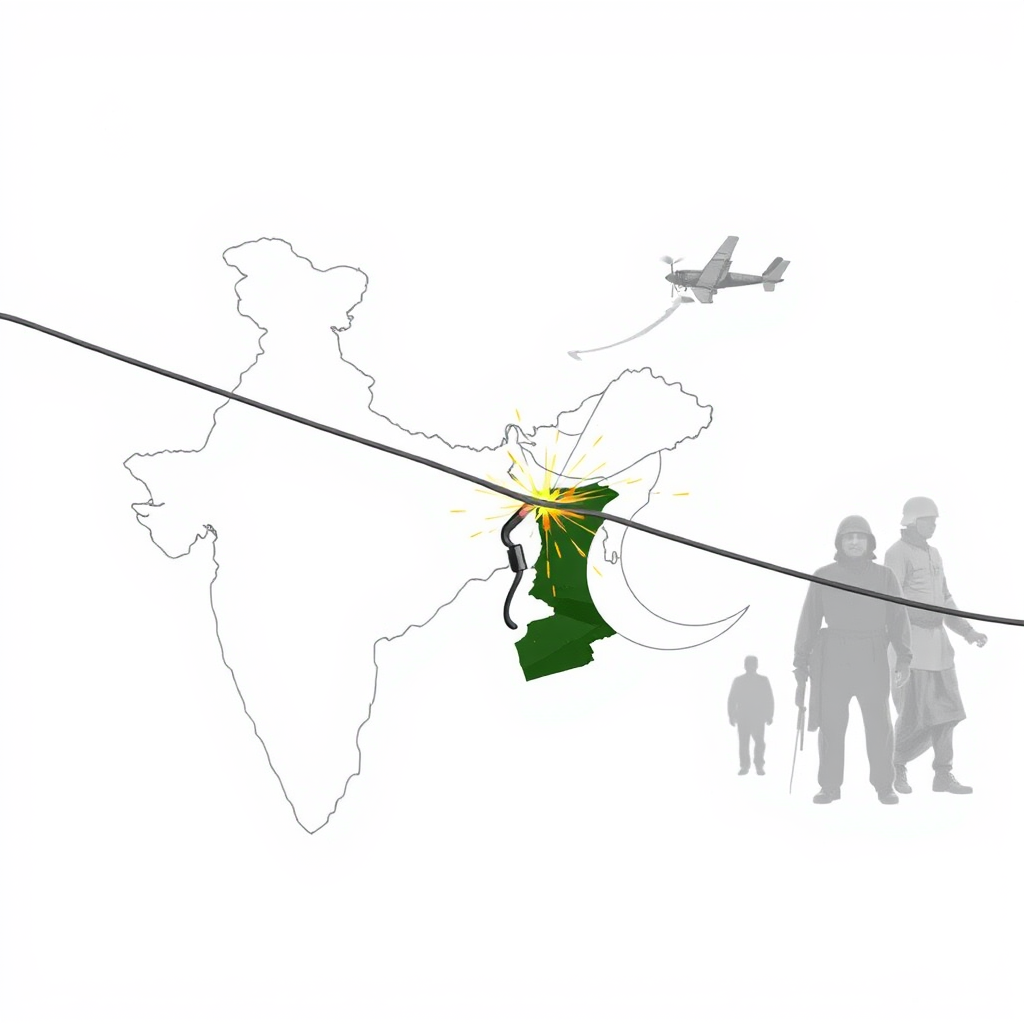India-Pakistan Crisis: The Brink of War?

Tensions between India and Pakistan have reached a dangerous new height following a deadly attack in the Kashmir region last week, raising fears of escalation despite a low probability of full-scale war. The incident, which left 26 people dead – including 25 Indians and one Nepali citizen – has ignited a cycle of accusation and threat, placing the two nuclear-armed nations on a precarious edge.
New Delhi swiftly blamed Pakistan for sponsoring the attack near Pahalgam, a claim Islamabad vehemently denies. The Resistance Front, a group India links to the Pakistani jihadist organization Lashkar-e-Taiba, initially claimed responsibility before retracting the statement. This ambiguity only fuels the existing distrust.
The situation is further complicated by increasingly bellicose rhetoric. An anonymous “top source” in the Indian government warned of “military retaliation,” while Pakistan’s information minister claimed intelligence suggested an imminent Indian military action. Though that deadline passed without incident, communication channels – including a hotline between senior military officials – remain open, suggesting a desire to avoid immediate conflict, even as posturing continues.
However, dismissing the danger would be a mistake. The brutality of the attack – reportedly targeting civilians and specifically Hindus – has deeply impacted Indian public opinion and placed significant political pressure on Prime Minister Modi’s government to respond forcefully. A failure to act could inflict serious domestic political damage.
Any Indian military action, however, would almost certainly provoke a response from Pakistan. While Islamabad denies involvement in the attack, it has historically supported extremist groups in Kashmir and would likely view any strike as an unacceptable provocation. The current unpopularity of Pakistan’s leadership adds another layer of complexity, potentially incentivizing a retaliatory response to rally domestic support.
The already strained diplomatic relationship is further deteriorating. Both India and Pakistan have suspended key bilateral agreements, including the crucial Indus Waters Treaty and the Simla Agreement, removing vital mechanisms for de-escalation and peaceful resolution.
While the existence of nuclear weapons continues to act as a deterrent against all-out war – the two nations have avoided large-scale conflict since acquiring nuclear capabilities in 1998 – limited military engagements have become increasingly common. Previous instances, such as the 2016 “surgical strikes” by India and the 2019 airstrikes following an attack claimed by Jaish-e-Mohammed, demonstrate a willingness to escalate even short of full-scale war.
The current situation is exceptionally volatile. While New Delhi likely aims to avoid a full-blown conflict, the risk of miscalculation or unintended consequences remains high. It’s plausible that India will opt for covert actions, such as targeted assassinations within Pakistan, to achieve tactical objectives while maintaining plausible deniability. However, even these actions carry significant risk.
The international community, including Washington and Beijing, is urging de-escalation, but ultimately, the responsibility for preventing a dangerous spiral rests with India and Pakistan. The current crisis underscores the urgent need for renewed dialogue and a commitment to addressing the underlying issues that continue to fuel tensions in the region. A return to diplomacy is not merely desirable; it is essential to prevent a potentially catastrophic outcome.